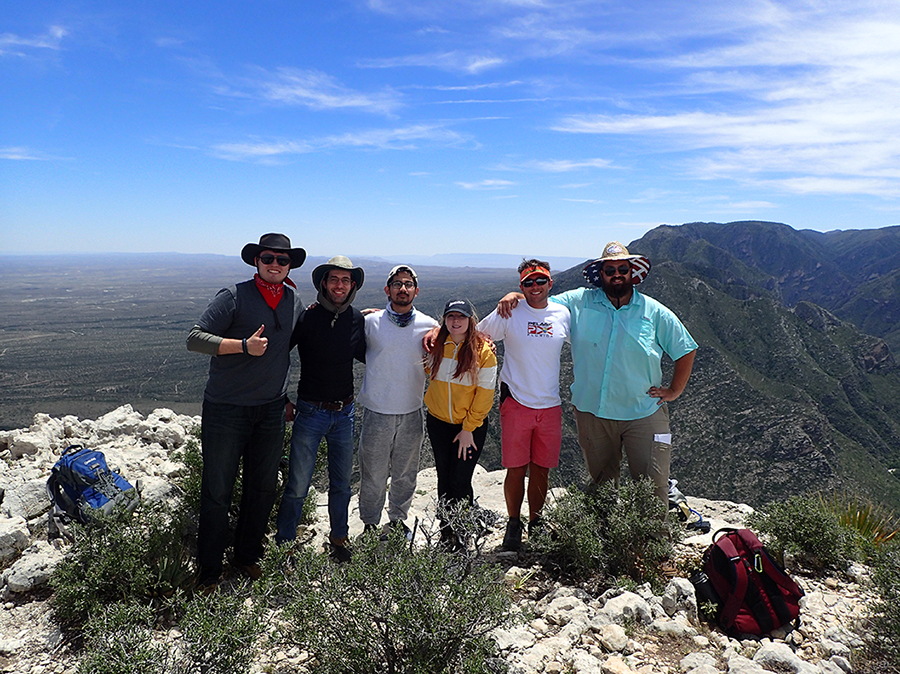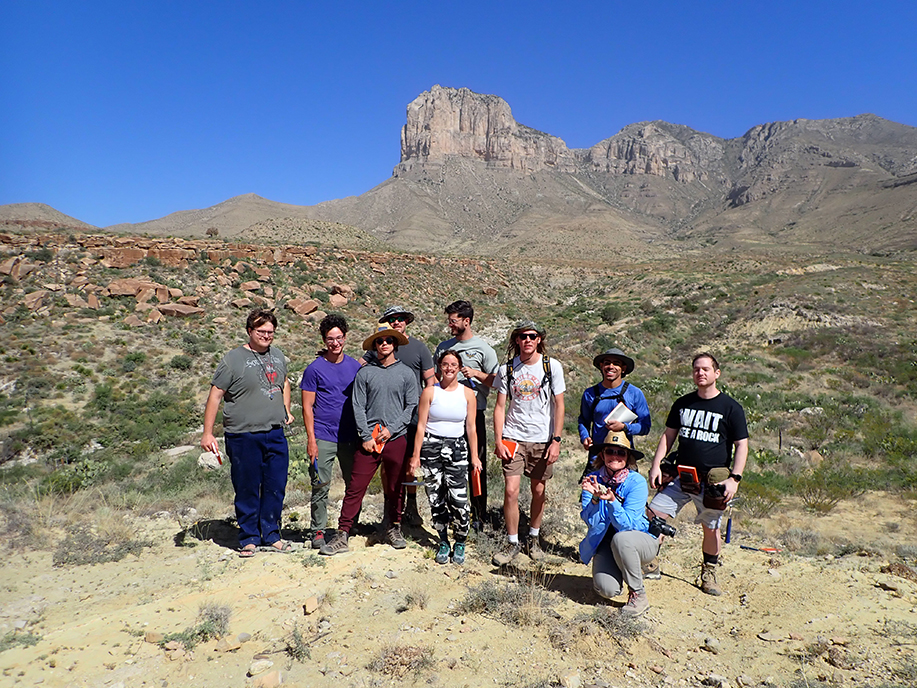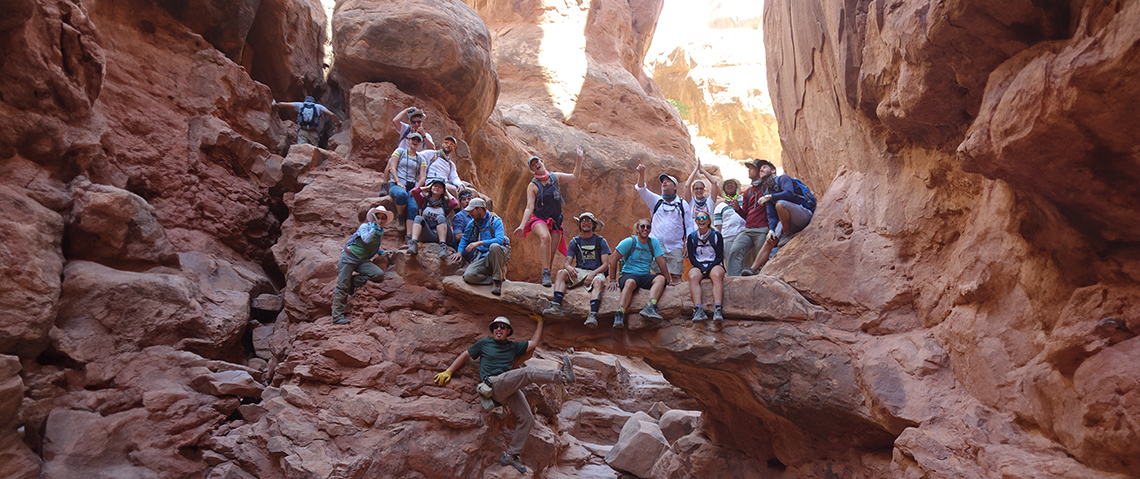Outside the Classroom: Exploring the Earth’s Natural Laboratory
June 2023
Fieldwork allows students to expand their knowledge of earth sciences by experiencing the subject in its natural laboratory. Field trips led by Anton Oleinik, Ph.D., associate professor, FAU Department of Geosciences, are a vital part in the life of a geology student and a key part of the program’s curriculum.
“The natural wonders of the solid Earth and the type of data that can be collected in the field cannot be substituted remotely, digitally, or from a virtual 3D simulation,” stated Oleinik. “Students must be able to experience field work where they can touch, measure, learn, collect, and discover in real life!”
His field trips are designed to provide students with a wide range of practical experience in geology, which helps to further their understanding of his lecture material and builds up their practical observation and interpretation skills. Students not only observe and map rocks, but also have first-hand exposure to the underlying processes that shape our planet.
Twice a year, Oleinik takes students on different trips. During spring break, undergraduate geoscience students visit the southeastern Appalachian Mountains, and study geology in Georgia, Tennessee, Kentucky, North Carolina, and South Carolina over the course of 10 days. The second trip, a six-week Geology Field Camp, is primarily held in the western San Juan Mountains of southwestern Colorado, but the class also examines geologic objects and wonders in western Texas, New Mexico, Utah, Arizona, and Kansas.

Through a series of field-based projects, students gain essential field skills that enhance their theoretical knowledge of geology obtained in the lab. Such experiential activities amidst the spectacular and often breathtaking structures exposed in the cliffs, valleys, and mountain slopes is often, quite literally, an eye-opening experience for many students.
“They discover to look beyond the horizon and connect the dots of what they learned in the classroom to what they see in front of them,” shared Oleinik. “Often times, it is nothing short of a revelation. Seeing an actual natural phenomenon in a rock outcrop advances their learning to a new level.”
Students who study Earth sciences have the opportunity to experience all that nature has to offer. At FAU, the world becomes your classroom. Learn more about the Charles E. Schmidt College of Science’s degree programs in geosciences at geosciences.fau.edu.

